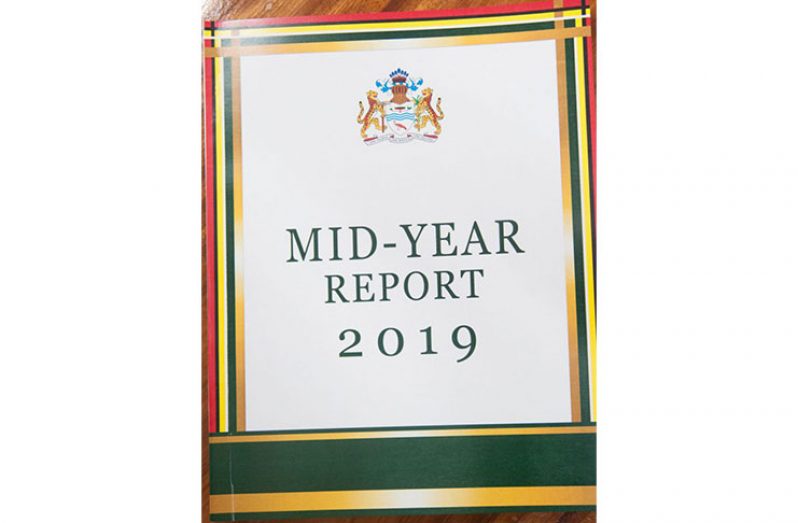– preparation for 2020, beyond needs to be intensified, says mid-year report
THE coming on stream of the petroleum industry has increased the expectations of the Guyanese people with regard to the potential for improving lives and transforming the economy, but the resource curse must be avoided.
This is according to the Ministry of Finance 2019 Mid-Year report.
The report noted that experiences across the world have shown that resource availability alone is not sufficient to effectively deliver on these expectations.
“The resource curse and the potential for conflicts are evidence of the need for robust regulatory frameworks and exceedingly strong institutional capacities in the effective management of the national patrimony. As such, government has consistently prioritised preparedness prior to first oil, expected in 2020,” the report stated.
As such, the mid-year report stated that an Inter-Ministerial Technical Committee on Petroleum (IMTCoP) was established in 2017 to coordinate the various public sector actors who have a role to play in the industry and in capacity building.
Since then and commendably, the report stated that Guyana is one of the few countries in the world that has established a sovereign wealth fund (entitled the Natural Resource Fund) prior to receipt of oil revenues.
However, government recognises that given the varying performance of Public Sector Investment Programmes (PSIP) and the inadequacy of the public education system, among other factors, the efforts to prepare for 2020 and beyond need to be intensified.
As such, the report noted that a key focus and mandate for Budget 2020, is accelerating institutional strengthening in preparation for first oil and oil revenues.
“Institutional strengthening for oil and gas will have at least two facets: 1) capacity building for public institutions in the discharge of their regulatory role within the petroleum industry, and 2) strengthening of public institutions to effectively utilise anticipated increased resources in the future. For the former, institutions such as the Guyana Revenue Authority, the Department of Energy and the Civil Defence Commission must focus on building capacity for cost audits, designing and negotiating production sharing agreements and oil spill management and preparation, respectively, among many other areas,” the report stated.
Through the IMTCoP, it was noted that government has identified more than 70 areas for strengthening across nine institutions, so far.
The imperative is to ensure that Guyana’s institutions are sufficiently equipped so that resource extraction delivers the maximum allowable benefit to the country, while assuring the safety of the environment and citizenry.
Failure to do so, the report noted, could result in revenue leakages and other externalities, to the detriment of Guyana’s current and future generations.
The second critical aspect of institutional strengthening, the report added, is to ensure that public institutions are equipped to effectively spend additional revenues expected from oil.
“Government is continually cognisant of the need to effectively manage public funds and, given the varying performance of the PSIP and the unremarkable health and education outcomes in recent history, recognises that institutions must be reformed and improved significantly to ensure that revenues are not wasted,” the report stated.
The report further stated: “Proposing increased allocations for drugs and medical supplies when procurement is inefficient, increasing teacher wages without commensurate increases in education outcomes and a direct linkage to performance and budgeting to expand national public infrastructure without a sufficient engineering corps and quality control, are all recipes for wastage of public funds.”
As such, it was noted that all sectors are mandated to prioritise institutional strengthening so that they attain the capacity to effectively deliver expanded public programmes and services, with a focus on achieving the results and ambitions set out in the Green State Development Strategy: Vision 2040, which incorporates the SDGs. Otherwise, revenues from oil would be for nothing.





.jpg)








